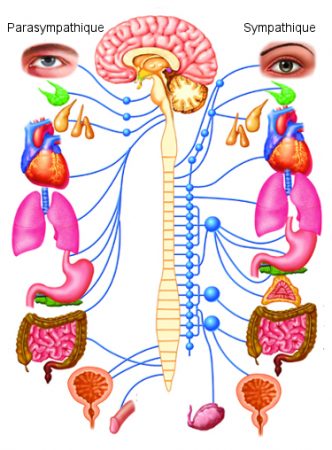How does the sympathetic nervous system affect gfr.The human nervous system is responsible for receiving information from the environment, processing it and sending commands to muscles, glands and organs.Three systems work together to fulfill the mission of the nervous system: central, peripheral and autonomic nervous systems.
The autonomic nervous system consists of two areas: the sympathetic nervous system and the parasympathetic nervous system. They act in opposite ways on the body. Both systems originate in the brain. Via our nerve tracts, the information is brought to where it is supposed to work, namely to the organs. It is only through the interaction of these mechanisms of action that a harmonious balance is created in the body. How do you know? Usually not at all, because everything is fine. They feel pleasant.
How does the sympathetic nervous system affect gfr

According To NCBI Report;
1. Increased RSNA has been demonstrated to contribute to the rise in blood pressure through three major mechanisms which include: (1) an increase in tubular reabsorption of urinary sodium and water,
(2) A reduction of renal blood flow and glomerular filtration rate(GFR), a
(3) Release of renin from the juxtaglomerular.
The sympathetic nervous system prepares the body for physical and mental performance. It ensures that our heart beats faster, the airways expand and the digestive activity is reduced. All energy should be used to be active. Digestion is therefore inhibited and “postponed” until one can rest again. Whether for work, sport or an unexpected stressful situation: Whenever you have to perform at your best, the sympathetic nervous system is always by your side.
The sympathetic nervous system
Activation of the sympathetic nervous system prepares the body for action. In response to a stress , the orchestra said response fight or flight ( ” fight or flight “) that results in bronchiectasis, accelerated heart activity and breathing, increased blood pressure, dilated pupils, increased sweating, decreased digestive activity.This system is associated with the activity of two neurotransmitters : noradrenaline and epinephrine